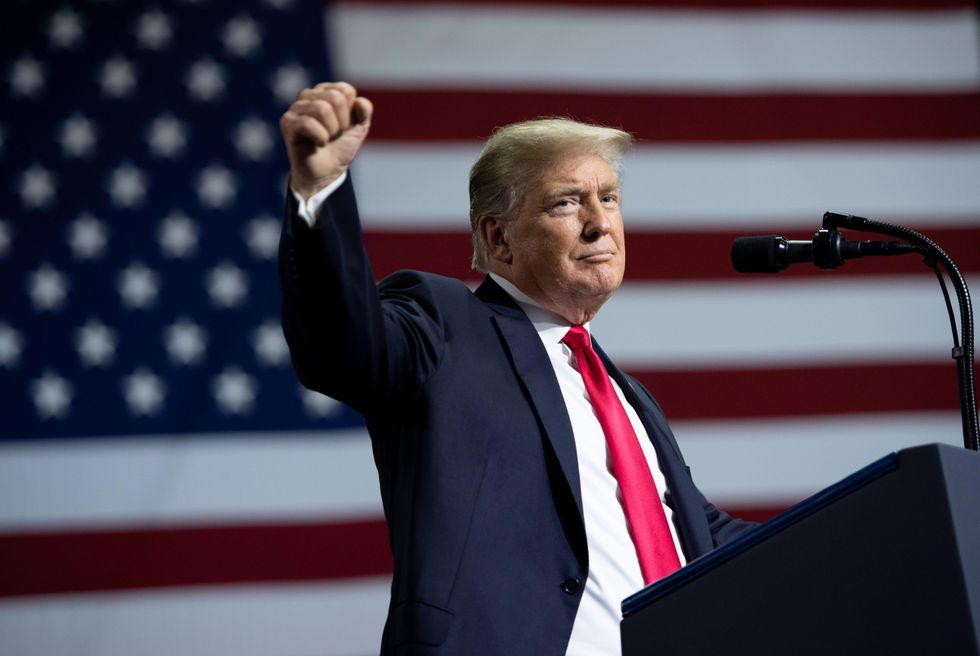
President Donald Trump claims Google has "shut out" conservative news from its search results, and suggests the search results are "illegal." (SAUL LOEB/AFP/Getty Images)

President Donald Trump raised eyebrows and elicited First Amendment concerns Tuesday when he appeared to threaten Google for allegedly elevating mainstream media news stories in search results while "suppressing" news from right-leaning outlets. Later, his top economic adviser threw gasoline on the fire.
In a pair of tweets, the president claimed Google has "shut out" conservative news from its search results, an act he suggested may be "illegal" and one he vowed to address.
Millions of Americans understand the sentiment behind Trump's tweets. Not only does the mainstream media largely control the national political discourse, but technology and social media giants — like Google and Facebook — seemingly work in tandem to elevate the media's narrative.
Indeed, for years now, companies like Google, Facebook, and Twitter have been accused of suppressing conservative voices and news from right-leaning outlets, in addition to policing their platforms differently for conservatives.
In fact, just this weekend, Twitter determined an attack against Dana Loesch's children did not constitute a violation of its terms of service. After backlash, Twitter reversed its decision.
However, Google is a private company. Thanks to America's free market-style economy, Google has the right to operate its business as it sees fit. Regulating Google's search algorithm in the spirit of "fairness" could result in a number of unintended consequences.
Additionally, such a regulation would appear to encroach on Google's First Amendment rights, potentially amounting to an abridgment of speech.
Still, to suggest Google's search algorithm operates under partisan filters represents a clear misunderstanding of how Google's search feature works. In fact, Google determines search results in a "supply and demand" fashion. The more popular a website relative to the number of searched keywords the higher it will appear in users' search results.
Larry Kudlow, Trump's chief economic adviser, told reporters outside the White House Tuesday that the Trump administration is "taking a look" at regulating Google's search algorithm.
"We’ll let you know. We’re taking a look at it," Kudlow reportedly said, adding the White House is running "analysis" and an "investigation."
The company said in a statement that it does not bias its search results.
"When users type queries into the Google Search bar, our goal is to make sure they receive the most relevant answers in a matter of seconds," a Google spokesperson said, according to The Hill.
"Search is not used to set a political agenda and we don't bias our results toward any political ideology. Every year, we issue hundreds of improvements to our algorithms to ensure they surface high-quality content in response to users' queries. We continually work to improve Google Search and we never rank search results to manipulate political sentiment," the spokesperson added.
This story has been updated.